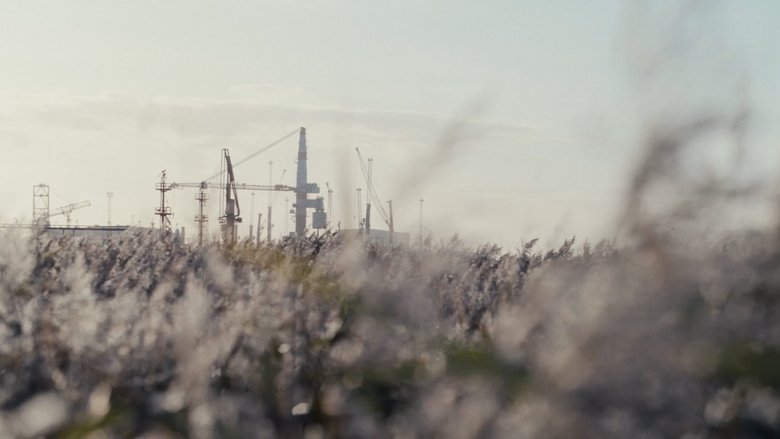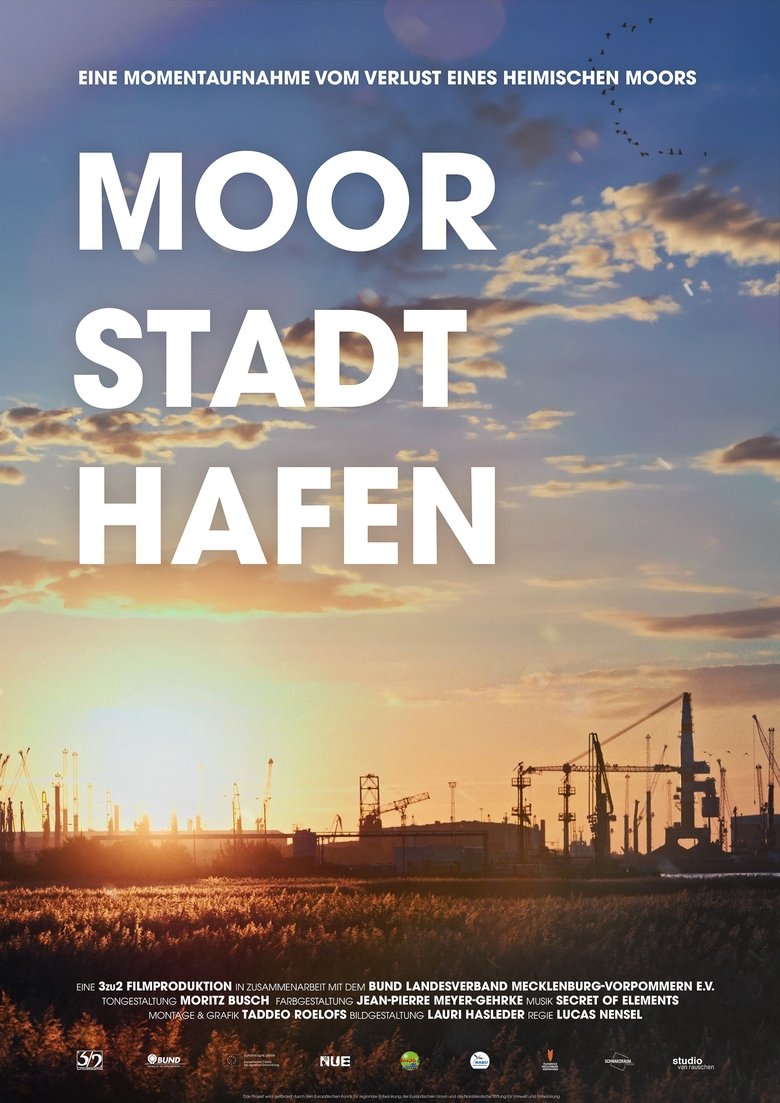Loading


MOOR CITY HARBOUR
A snapshot of the loss of a native moor
Genres
Documentary
Overview
The city of Rostock is planning to expand the harbour by 660 hectares in the coming years. While measures to restore moors are being implemented throughout Europe, Rostock is planning to destroy an intact moor area. This affects the swamp of the Peezer Bach and surrounding natural areas, which make important contributions to the climate and biodiversity. MOOR CITY HARBOUR is about the value and beauty of a native moor, as well as the severity of its loss.
Details
Budget
$7000
Revenue
$0
Runtime
18 min
Release Date
Status
Released
Original Language
German
Vote Count
0
Vote Average
0
Cast
Meet the talented actors who bring the movie to life.
Similar Movies
Explore movies similar to this one that you might also enjoy.
8.0
Planète animale 2 : Survivre
2017-04-25 | fr
0.0
Horizon
From the turtles of the Farasan Islands to the ibex that dot the Asir Mountains, this documentary captures Saudi Arabia's diverse wildlife and scenery.
2024-01-04 | ar
8.0
The Himalayas
The highest mountain range in the world, the Himalayan range is far reaching, spanning thousands of miles, and holds within it an exceptionally diverse ecology. Coniferous and subtropical forests, wetlands, and montane grasslands are as much a part of this world as the inhospitable, frozen mountaintops that tower above. The word Himalaya is Sanskrit for abode of snow, fitting for a stretch of land that houses the world’s largest non polar ice masses. Extensive glacial networks feed Asia's major rivers including the Ganges, Indus, and Brahmaputra. More than a billion people rely on these glacier-fed water sources for drinking water and agriculture. The Himalayas are not only a remarkable expanse of natural beauty. They're also crucial for our survival.
2011-03-13 | en
8.0
Supervolcan Yellowstone : Menace sur la planète ?
2022-10-10 | fr
6.9
Dolphin Reef
Echo is a youngster who can't quite decide if it's time to grow up and take on new responsibilities-or give in to her silly side and just have fun. Dolphin society is tricky, and the coral reef that Echo and his family call home depends on all of its inhabitants to keep it healthy. But Echo has a tough time resisting the many adventures the ocean has to offer.
2018-03-28 | en
10.0
Nature Planet: Squirrels
A look at the world of squirrels in the forests of Alabama
2024-04-19 | en
0.0
Expedition Svalbard: Part 1 - Hornsund to Bear Island
A short film produced during a photographic expedition of the Svalbard Archipelago. It takes the natural highlights of the expedition and includes Bråsvellbreen, Storøya, Alkefjellet, polar bears, walrus, and phenomenal seabird colonies.
2012-01-01 | en
0.0
Snowy Owl, queen of the North
2012-02-08 | en
0.0
City Slickers: A tale of two African penguins
Fifteen years ago, a handful of African Penguins, normally found only on remote islands off the Southern African coast, stumbled across on of the Cape's most beautiful and popular tourist beaches. They swam, they saw, they conquered. And today, Boulders beach is home to more than 4,000 of these delightful, resourceful and entertaining seabirds who live side by side with their human neighbours -well, most of the time! These knee-high invaders not only share the beach, they dodge traffic, scale fences, and take over gardens, the golf course and even the occasional bedroom! For the two feathered stars, Henry and Margot, it's a tale of romance, the challenges of parenthood, separation and a penguin's worst nightmare, oil.
2002-06-01 | en
9.0
Madagascar or the Great Carnival of the Chameleons
A unique documentary on chameleons living on the island of Madagascar, the world’s largest chameleon concentration, revealing incredible never-before-seen images and behaviors. Discover their incredible abilities such as: sleeping techniques, dancing, camouflage, 340° peripheral vision, catapult tongue, seduction, fluorescence...
2024-06-01 | en
5.1
Kingdom of the Apes: Battle Lines
Gorillas and Chimpanzees struggle for power and dominance within their clans.
2014-07-13 | en
0.0
Penguins Under Siege
The untold story of South Africa's blackfoot Penguins.
2004-01-01 | en
0.0
The African Penguin
The African penguin is the only penguin that lives on the African continent. It was known as the jackass penguin because of its donkey-like call. This film covers the life cycle of this incredible bird, fom mating to laying of eggs to hunting and the moulting cycle. Sadly, it also shows the stark reality of a bird on the road to extinction.
2009-10-03 | en
7.6
Winged Migration
This documentary follows various migratory bird species on their long journeys from their summer homes to the equator and back, covering thousands of miles and navigating by the stars. These arduous treks are crucial for survival, seeking hospitable climates and food sources. Birds face numerous challenges, including crossing oceans and evading predators, illness, and injury. Although migrations are undertaken as a community, birds disperse into family units once they reach their destinations, and every continent is affected by these migrations, hosting migratory bird species at least part of the year.
2001-12-12 | fr
7.7
Secret Lives of Orangutans
Follow a multi-generational orangutan family through their treetop triumphs and travails in this immersive documentary narrated by David Attenborough.
2024-08-21 | en
6.8
Africa: The Serengeti
The equation of life on the Serengeti is simple: carnivores eat plants, herbivores eat carnivores. Africa: The Serengeti takes you on an extraordinary journey to view a spectacle few humans have ever witnessed. The Great Migration. Journey with more than two million wildebeests, zebras and antelopes in their annual 500 mile trek across the Serengeti plains
1994-03-31 | en
6.8
Amazon
Explore the mysterious Amazon through the amazing IMAX experience. Amazon celebrates the beauty, vitality and wonder of the rapidly disappearing rain forest.
1997-01-01 | en
6.7
Most Wanted Sharks
Whether it's the biggest great white, the most photographed tiger shark, or the shark known for jumping 100 feet up out of the water, we're diving into the stories of the greatest shark stars of all time.
2020-07-15 | en
6.7
The 11th Hour
A look at the state of the global environment including visionary and practical solutions for restoring the planet's ecosystems. Featuring ongoing dialogues of experts from all over the world, including former Soviet Prime Minister Mikhail Gorbachev, renowned scientist Stephen Hawking, former head of the CIA R. James Woolse
2007-08-17 | en
0.0
DARIO - How To Not Change The World
At Brandenburg Gate in Berlin, a man jumps over a barrier. Within seconds, five police officers catch him and push him to the ground. He laughs loudly. Evidently, this is exactly what he was aiming for. Dario is disappointed with current climate policies and sees only one solution: strike out and resist. His resistance has already led to several outstanding criminal proceedings against him in Germany. A request from Switzerland comes at just the right moment to prove himself further: the activist group “Klimastreik” is looking for someone who is willing to commit a “crime”.
2025-05-15 | de